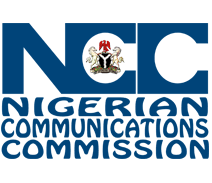The Executive Vice Chairman of Nigerian Communications Commission (NCC), Dr Aminu Maida, has said the judiciary is critical in Nigeria’s quest for Digital transformation.
The EVC who was speaking at the 2024 national workshop for Justices and Judges on Legal Issues in Telecommunications organised by the Nigerian Communications Commission (NCC) in collaboration with the National Judicial Institute (NJI) in Abuja, said the theme of this year’sworkshop, “The role of the judiciary in accelerating digital transformation in Nigeria” is especially fitting, given the urgency of scaling up digital transformation across Nigeria.
He said this is even so given the importance placed by the government on improving coordination and synergy among key stakeholders to achieve more beneficial outcomes on its policies.
Dr. Maida, while emphasizing the commission’s commitment to building enduring partnerships across government, including the judiciary, said the mandate of the NCC gives it the power to play an integral role in Nigeria’s transition to a truly digital economy.
“An important aspect of this role involves facilitating the deployment and safeguarding of telecommunication infrastructure – which is essentially the backbone upon which digital services are delivered across various sectors of the economy,” he said.
“I am aware, as you all are, of the extent to which the judiciary today depends on digital tools and technologies to carry out its functions. “Much of the work that you do as Judges has been transformed over time by the introduction of technology, commendably improving the pace and quality of the delivery of justice in Nigeria.”
He said that ensuring and regulating Nigeria’s digital transformation is not a task that the NCC can fulfil alone, insisting that it involves strategic collaboration with key partners, “and the judiciary remains one of our most important stakeholders in this regard. “A functional digital economy is built on investor and consumer confidence, which are impossible in the absence of the rule of law – a critical element that is supplied by the judiciary.”
Dr. Maida noted that as the digital landscape continues to evolve at an unprecedented pace, the judiciary stands as a vital pillar in shaping a present and a future where technology serves humanity.
“The judiciary is not simply a bystander observing the digital revolution; instead, it is an active participant, playing a continuous role in shaping the legal frameworks that govern this new technological era,” he said, adding, “The judiciary’s ability to adapt and evolve alongside technological advancements is paramount to ensuring that the benefits of digital transformation are accessible to all, while mitigating potential risks.”
He said it is the responsibility of the judiciary to provide a mechanism for enforcing online agreements and resolving disputes arising from e-commerce, intellectual property, and other digital transactions, fostering trust and predictability in the digital economy.
“That is why this workshop is crucial because I am convinced that in the course of this workshop, subject matter experts will provide valuable insights to further support the judiciary in fulfilling its vital role within our democratic framework, especially as it relates to the evolving landscape of digital technologies and communication practices,” he said.
Delivering her keynote address, the Chief Justice of Nigeria, Hon. Justice Kudirat Olatokunbo Kekere-Ekun, said the Nigerian Judiciary is committed to the development of the telecommunications sector in Nigeria.
She said that the deployment of technology in telecommunications plays a pivotal role in the advancement and enhancement of the economic system of any country and invariably stands as a driving force towards globalization.
According to her, “However, considering the fact that this workshop primarily seeks to highlight and proffer solutions to legal issues in telecommunications, I would like to quickly bring our attention to two issues which I consider to be pivotal and which revolve around cyber security and the attendant challenges of exploring the digital space.
“The first is the increased risk of the personal data of consumers being misused or compromised by unscrupulous persons, thus necessitating the need for improved strategies and innovation for consumer protection in the Telecommunications Sector.
“Also, worth noting are deficiencies in the Banking Sector and which are attributable to reliance on digital services provided by the Telecommunications Sector. There is for instance the major challenge posed by electronically backed transactions which is commonplace in the Banking Sector.
“Concerns in this regard include the spate of customers whose online banking platforms have been hacked, as well as banks being compromised due to technological glitches not factored into their day to day operations.
“Consequently, these and several other challenges have resulted in a number of disputes which frequently require adjudication.
“I am therefore hopeful that this Workshop will avail participants the opportunity to deliberate on current challenges confronting the Telecommunications Sector and to cross-fertilize ideas on the viable options and strategies to address these issues.
“It is also my expectation that the forum will equip Judicial Officers with the technical skills required for adjudicating disputes arising from the Sector and keep them abreast with global standards and best practices.”


